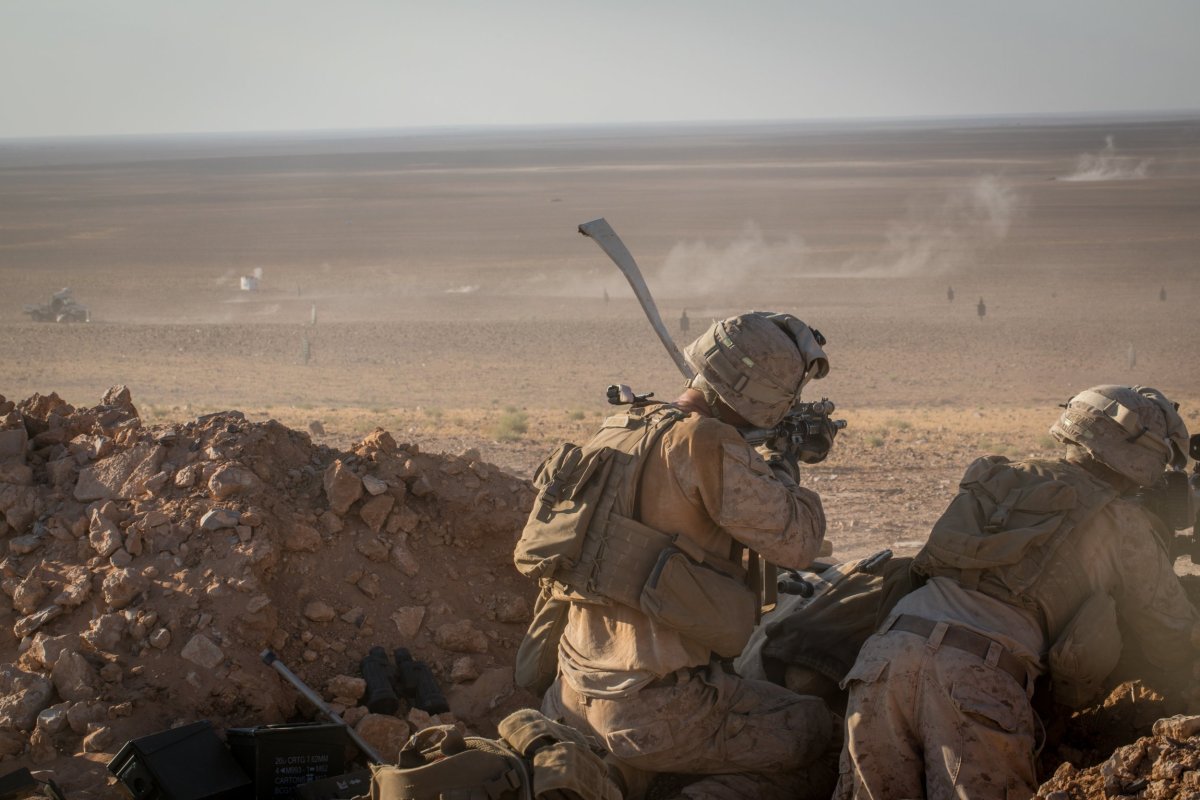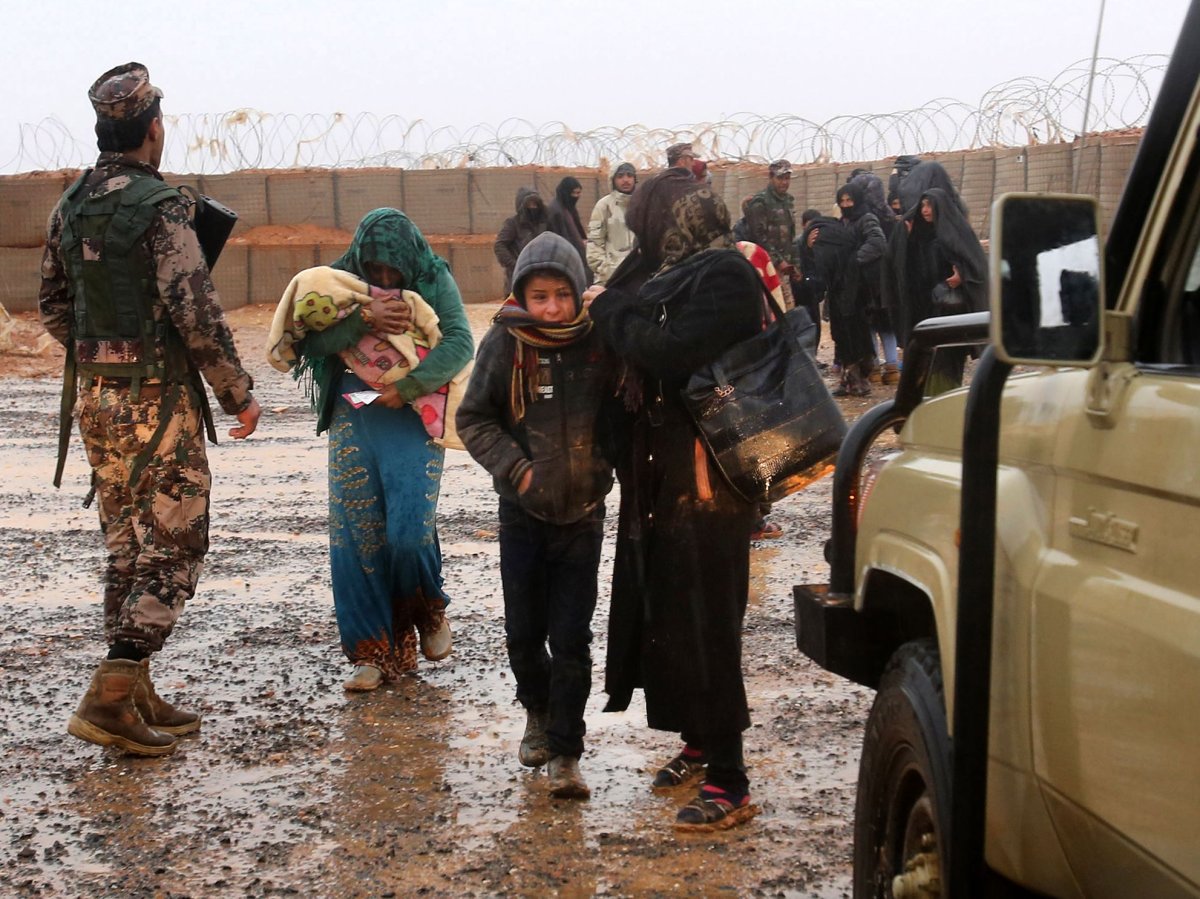Russia has called on the United States to withdraw from a base established by the Pentagon in southern Syria, alleging the presence runs contrary to international law.
Colonel General Mikhail Mizintsev, head of Moscow's National Defense Control Center, addressed a joint session Friday of Russian and Syrian committees tasked with returning Syrian refugees and blamed the U.S. for deteriorating humanitarian conditions in the Rukban refugee camp. The settlement is located within a U.S.-controlled security zone surrounding the Al-Tanf base on the harsh border of Syria and Jordan and has witnessed starvation deaths due to lack of supplies.
"Such a situation in which the camp finds itself reminds one of the concentration camps of the Second World War, which seemed to be long gone. How is it possible in the modern world?" Mizintsev said. "Why, in these conditions, the world community, which cares so much about human rights, continues to persistently keep silent about the humanitarian disaster in the Rukban camp? In fact, being held hostage.
"Why are the official structures of the United Nations responsible for providing all-round assistance to refugees, in fact, are not active and persistent in resolving global humanitarian issues related to the terrible situation of Syrian citizens in the Rukban camp?" he added.

Mizintsev argued that the Pentagon's stated mission of battling the Islamic State militant group (ISIS) did not apply to Al-Tanf as "there are no ISIS groups in southern Syria."
"We call on the United States of America to immediately stop the illegal occupation of the 55-kilometer zone around Al-Tanf, which is the sovereign territory of the Syrian Arab Republic. This will automatically lead to the resolution of the Rukban problem and return of its residents back to their homes," he added.
The dire humanitarian situation in Rukban, where nearly 50,000 people remain isolated from the rest of the world, has received growing international attention in recent months. Jordan has closed its nearby border to all traffic, fearing potential infiltration by ISIS, which has targeted the camp in the past. The U.S.-led coalition in control of nearby Al-Tanf, has focused its resources on training insurgents of Mughawir al-Thawra, one of the last Syrian rebel groups directly supported by the U.S., to fight the jihadis.
With the last convoy from Jordan having arrived in January, the United Nations has instead appealed to the Syrian government—which it has charged with a number of war crimes—to provide assistance to the suffering inhabitants of Rukban. However, Damascus cut supply routes after its Russian ally argued that the U.S. failed to provide adequate security measures as international tensions rose. The U.S. denied this charge and, as conditions in the camp worsened, a U.N. humanitarian convoy escorted by the Syrian Arab Red Crescent finally arrived last week.
Both the U.S. and Russia have accused one another of using the camp as a pawn to advance their competing missions in Syria, where the former views Syrian President Bashar al-Assad as illegitimate and the latter backs him. Questioned on why the U.S.-led coalition against ISIS waited for Russia to provide assistance to the camp, spokesperson U.K. Major General Chris Ghika told a briefing Tuesday that "the situation around Rukban is very complicated."
"As you know, there's a deconfliction zone. There are a number of different forces operating there," Ghika told reporters. "And ensuring the security of the convoy in and out was our primary consideration. And therefore, I don't think it's surprising that it took quite a lot of time and effort to get it there. That we got it there and it delivered aid to people in need, I think is a thing we should focus on."

Outside of the Al-Tanf deconfliction zone's perimeters, a number of pro-Syrian government militias have operated as part of a separate anti-ISIS campaign waged by Assad and his Russian and Iranian partners. Skirmishes have occurred between the U.S.-led coalition and such groups that have allegedly approached the zone's perimeter. Damascus has also called for the U.S. to pull out of the zone, considering only Moscow and Tehran to be legitimate foreign allies.
Commenting on reports that Jordan was in talks with the U.S. and Russia to dismantle the Rukban camp, Ghika said he would not comment on "speculation," but "if we can assist in any way, as we did with this convoy, to bring humanitarian aid to some people who are suffering then we will try and assist."
Uncommon Knowledge
Newsweek is committed to challenging conventional wisdom and finding connections in the search for common ground.
Newsweek is committed to challenging conventional wisdom and finding connections in the search for common ground.
About the writer
Based in his hometown of Staten Island, New York City, Tom O'Connor is an award-winning Senior Writer of Foreign Policy ... Read more
To read how Newsweek uses AI as a newsroom tool, Click here.








